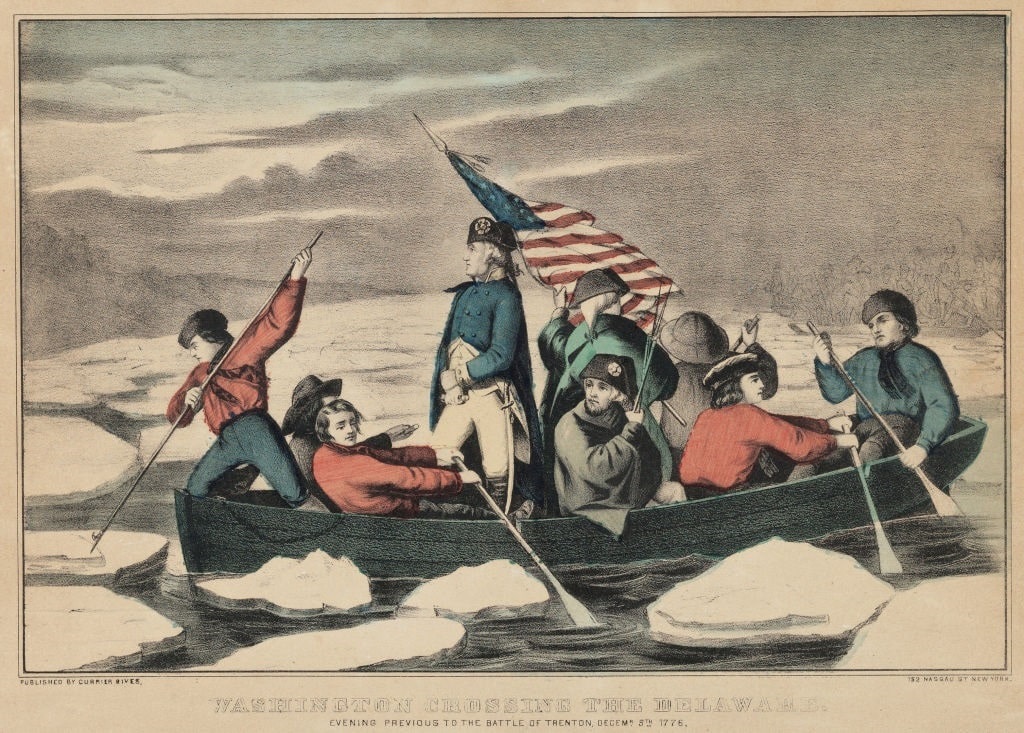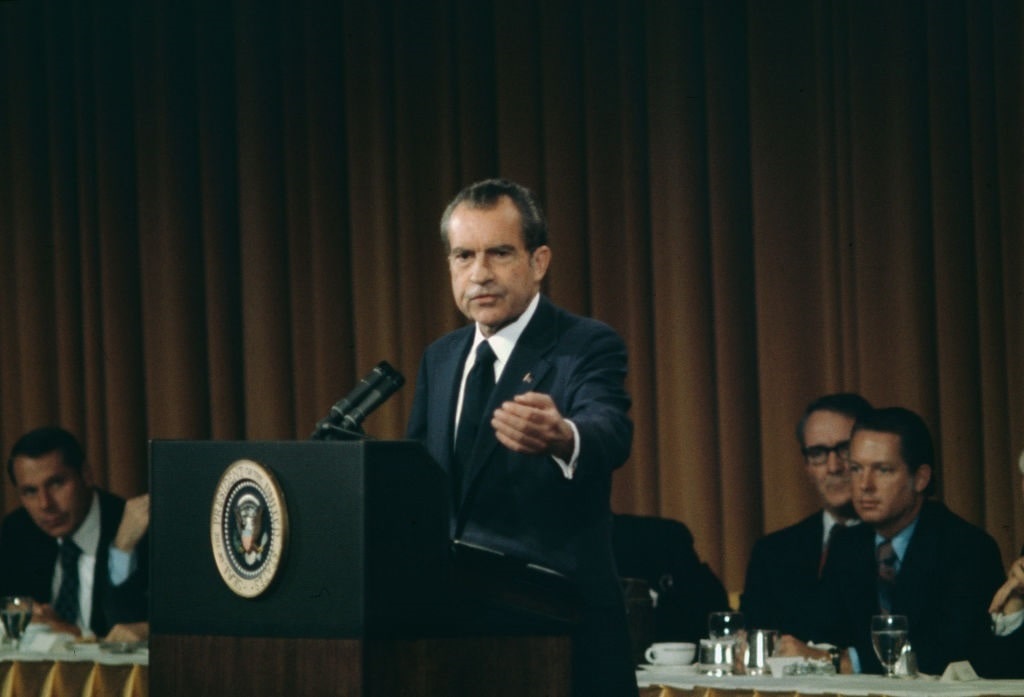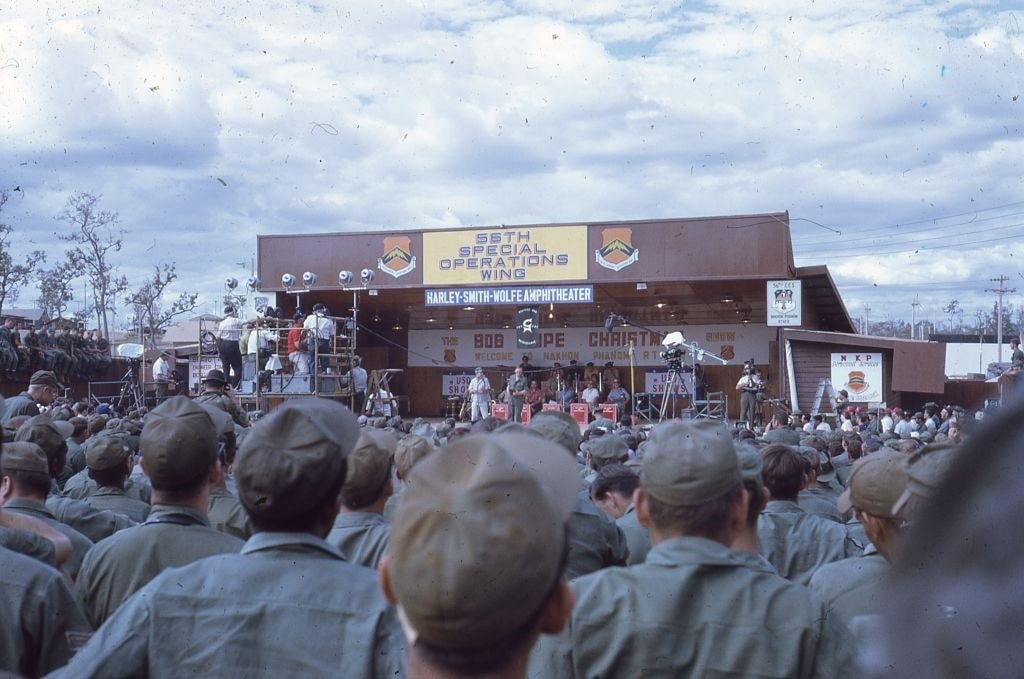War is no respecter of peoples’ aspirations, values, or the days they commemorate. Take Christmas, for example. As we approach the celebration of the birth of Jesus, US service members are deployed away from family and home. Many are in hostile areas under frequent attack. In the battle moment, the violence of conflict gobbles up time. It focuses the combatants on the instant, not a child’s birthday missed, an overlooked anniversary, or an important holiday left unnoticed. That’s how it is for the men and women who serve in the military.
Last year, Liberty Nation’s Sarah Cowgill reminded us of the festivities of the Christmas season our military did not always enjoy while serving. In America’s history, Christmas has gone to war when American fighting men and women have gone to war. During those times, there have been noteworthy events and accomplishments. There are three occasions worth remembering in America’s past when Christmas was shared with the battlefield.
The Course of the Revolutionary War Turned on Christmas Day

(Photo by Pierce Archive LLC/Buyenlarge via Getty Images)
One of the most legendary, tide-turning battles happened during America’s Revolutionary War. Many Americans remember the event commemorated in the famous painting of General George Washington standing proudly, chest out, in the bow of a rowboat crossing the Delaware River. With his 2,400-strong Continental Army, General Washington braved the icy water and bone-chilling air to attack opposing Hessian soldiers fighting for Britain at Trenton, New Jersey, on Christmas Day. As Evan Andrews recounts the story for History.com, “Many of the Hessians were still disoriented from the previous night’s holiday bender, and colonial forces defeated them with minimal bloodshed. While Washington had pulled off a shock victory, his army was unequipped to hold the city, and he was forced to re-cross the Delaware that same day—this time with nearly 1,000 Hessian prisoners in tow.”
Until then, the war was not going well for the young nation’s fight against superior British forces. Defeat after defeat and a bitterly cold winter had sapped the enthusiasm of the Continental soldiers. Morale was at a low point. December 25, 1776, the victory at Trenton rejuvenated the flagging spirits of the courageous revolutionaries. The future first president of the United States would go on to win subsequent battles against the English, but the Delaware River crossing was the critical event in the fledgling nation’s ultimate victory.
The American Civil War was a bloody affair where carnage was the hallmark of every battle between Confederate and Union armies. Unlike Washington crossing the Delaware River, the Union experience on Christmas 1864 was decidedly different. During Christmas week, Union forces led by Major General Benjamin Butler engaged in the first Battle of Fort Fisher, one of the last strongholds guarding the only Confederate port open to the Atlantic Ocean for moving supplies to Southern soldiers. “It was a debacle for the Union,” DOD News writer Katie Lange explained. It seems Butler’s forces decided it would be a good idea to load up a warship with explosives and detonate it close to the fort walls. With the walls down, capturing the fort would be easier. The ship blew up but did little damage – it did, however, alert the Confederates to the impending attack.
“On Christmas morning, Union commanders decided to shell an area north of the fort so troops could land and come ashore. But when they did, more disappointment followed — the fort’s heavy artillery was completely unscathed, so that was a no-go, too. It was only then that the Union ordered troops to retreat,” Lange recounted. Butler was relieved from command. Three weeks later, in mid-January, following a second attack, Fort Fisher surrendered.
The ”Christmas Bombing” Convinced North Vietnam to Negotiate

Richard Nixon (Photo by UPI/Bettmann Archive/Getty Images)
In 1972, American forces were engaged in one of the largest air wars during the Vietnam conflict. The late former Secretary of State Henry Kissinger was negotiating with the North Vietnamese to secure an end to the ten-year-old conflict. When it became clear that the North Vietnam delegation leader Le Duc Tho was not negotiating in good faith and left the meeting, then President Richard Nixon ordered an intense 12-day “Christmas Bombing” from December 18 to December 29, 1972. The aerial bombardment was named Linebacker II and concentrated on the port city of Haiphong and North Vietnam’s capital, Hanoi. The Hanoi government was caught unprepared for the magnitude and ferocity of the aerial attack.
Retired US Navy Captain Carl O. Schuster, now a history professor at Hawaii Pacific University, described the extent of Nixon’s Christmas holiday surprise:
“In total, 2,003 strike sorties into Vietnam delivered 20,237 tons of ordnance against 59 targets in North Vietnam. B-52 bombers delivered 75 percent of the tonnage dropped (15,237 tons) in 729 sorties, while fighter-bomber and attack aircraft garnered 25 percent (5,000 tons) in 1,274 sorties—769 Air Force and 505 Navy/Marine fighter-bombers. Half of the Navy/Marine sorties (277) were flown at night.”
Over Christmas Day, the US initiated a 36-hour bombing pause. North Vietnam interpreted the lull as a victory. They were wrong. On December 26, the bombing resumed with renewed intensity. On December 27, North Vietnamese General Party Secretary Le Duan sent Nixon word he wanted to resume the talks. Linebacker II ended on December 30.
Since the end of the Vietnam War and the over 50,000 US service members lost to that conflict, America’s valiant armed forces have spent countless Christmases away from loved ones. Conflicts in Iraq, Afghanistan, Bosnia, and most recently for US sailors, Marines, and Airman in the Middle East flying combat missions and serving onboard warships in the Red Sea, another Christmas will be spent in keeping their fellow Americans secure. As we celebrate the birth of a savior, we are grateful for the dedicated willingness of young men and women who serve away from home.
The views expressed are those of the author and not of any other affiliation.




